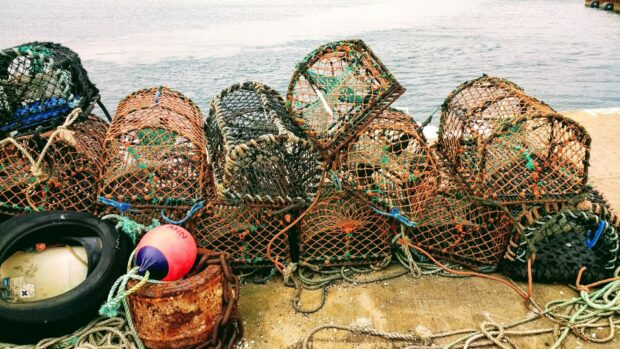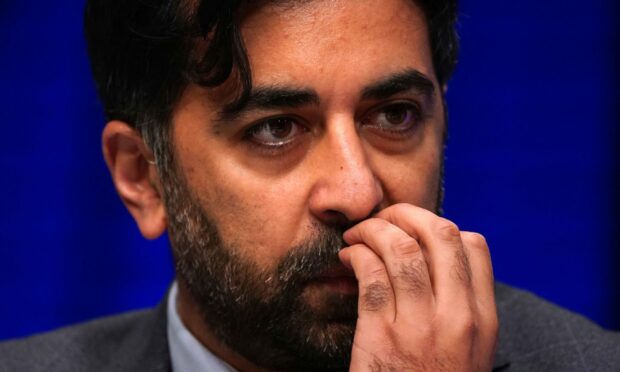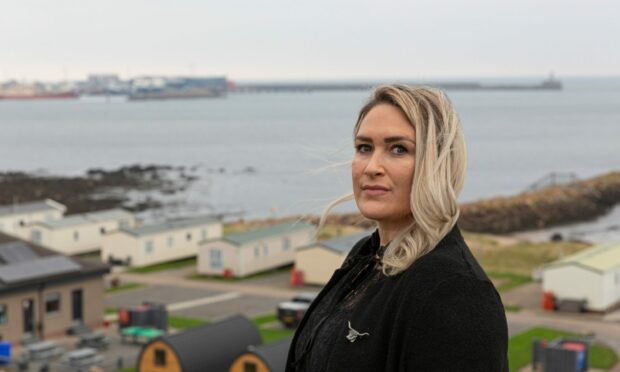Scottish Tories are drawing up proposals to scrap controversial plans for fishing bans and replace them with a “small scale” pilot scheme.
The party will set out the policy opposing “unworkable plans” for Highly Protected Marine Areas (HPMAs) at its spring conference in Glasgow on Friday.
Rachael Hamilton, the party’s rural affairs spokeswoman, will call on the SNP and Greens to go “back to the drawing board” and scrap the proposals which they claim will put “rural jobs and livelihoods at risk”.
First Minister Humza Yousaf has already indicated the zones will not be “imposed” in places that do not want them, following a fierce backlash from island communities.
Under the Tory plan, a study would be carried out on how the plans could directly affect coastal and fishing communities.
The party would also commission a feasibility study into giving councils more power to ensure marine protection designations are effectively implemented and enforced.
They want to see annual reviews of any protected areas implemented to ensure fish stocks are appropriately protected in the right areas.
After evidence is gathered, the Conservatives wants to see a “small scale” pilot phase introduced before any zones can get the go ahead.
What are HPMAs?
The current plans by the SNP-Green government would see at least 10% of Scotland’s seas designated as HPMAs.
The proposals are a consequence of the two parties’ power-sharing deal, known as the Bute House Agreement.
Commercial and recreational fishing would be banned in the designated areas.
They would also place strict limits on infrastructure construction.
Those in favour of the proposals say it would lead to greater biodiversity and abundance of marine species, including those which are targeted by commercial and recreational fishers.
Backlash grows
However, HPMAs have raised “fear and uncertainty” among coastal communities right across the Highlands, islands and along the North Sea coast.
The pressure is also being felt on SNP parliamentarians, with Banffshire and Buchan MSP Karen Adam raising concerns over the government’s proposals.
She has written to SNP Government minister Màiri McAllan, urging her to do more to engage with and reassure fishers across Scotland on the policy.
In her letter, sent on April 19, the SNP MSP said constituents had contacted her in recent weeks with concerns around engagement with those impacted.
Former SNP MSP, Angus MacDonald, who lives in Lewis, quit the SNP after 35 years.
He described the new highly regulated fishing zones as the “final straw”.
Banff and Buchan Tory MP David Duguid has written to the first minister urging him to “practice what he preaches” after he said HPMAs would not be imposed on communities “that do not want them”.
He said fishing operations out of ports like Peterhead and Fraserburgh should not be included in the “catastrophic proposals”.
‘Rural jobs at stake’
Ms Hamilton will outline her party’s approach to HPMAs at the Scottish Event Complex (SEC) in Glasgow on Friday.
Prime Minister Rishi Sunak, Scottish Secretary Alister Jack and Scottish Conservative leader Douglas Ross will be among the speakers at the two-day event.
She said: “A small-scale pilot of marine proposals is the only responsible way forward to protect Scotland’s seas.
“They must commit to taking an evidence-led approach which should also involve an analysis phase and a piloting phase before any proposal is given the go ahead.
“Rural jobs and livelihoods are at stake here and the onus is on SNP-Green ministers to get this right, especially when the economic outlook is already so fragile in rural and coastal communities.”
In their 2021 Holyrood election manifesto, the Tories committed to piloting their introduction.
They also vowed to review the current Marine Protected Areas which cover 37% of Scottish waters, with a view to expanding the area they cover.
Speaking during First Minister’s Questions on April 20, Mr Yousaf said no sites have been selected yet for the zones.
He added this would not begin until responses from a recent public consultation have been analysed.
‘Strength of feeling’
Ms McAllan said: “I recognise there is considerable strength of feeling on this issue – which is why I wanted to consult so early in the process on the principles of HPMAs and the criteria that might constitute site selection – we are not at the stage of having any sites in mind.
“I will be visiting coastal and island communities over the summer to hear from them directly, with a view to working hand-in-hand with individuals and businesses to ensure that these proposals are taken forward in a sustainable and just way. I am also meeting coastal MSPs shortly on this.
“We must not forget that the real threat to the Scottish fishing industry is the continuing adverse impacts of Brexit – including significant new trading and logistics costs – and UK Government immigration policies for fishing and other seafood industries, which fail to address post-Brexit labour shortages or meet Scotland’s distinct demographic and economic needs.”



